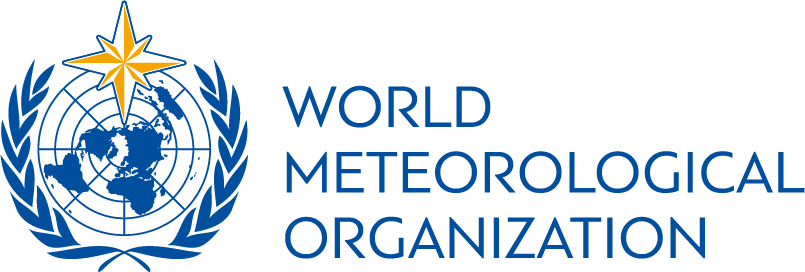Action Line C7 E-Environment: Weather, Climate and Environmental risk management: every life counts, every digit helps
World Meteorological Organisation (WMO), International Telecommunication Union (ITU)

Session 110
Translating knowledge into disaster risk management
Background
Weather , climate and environmental extreme events are increasingly becoming the most threatening issues to people and societies around the world (World Economic Forum, 2019) with increased threat to people lives, economies and the natural environment. The recent devastating disasters ( WMO statement on the State of the Global Climate, 2019) demonstrate the need for strengthening collaboration for enhancing the efficiency of Multi-Hazard Early Warning Systems. The session will inform on the current progress made in Multi-hazard Early Warning Systems (MHEWS), Disaster Risk reduction and the use of ICT for gathering, analyzing and communicating information on extreme and high-impact weather, climate and environmental events. It will offer an opportunity for the participants to learn, discuss and understand how MHEWS are contributing to reduce vulnerability, as well as the role that innovations in information technology can play in ensuring timely delivery of information, to all at the last mile.
Expected outcomes
- Raise awareness on the impact of weather, climate and environmental related disasters and the efforts being made to reduce the associated loss of lives and economic damage. This will take place in connection with international agendas such as the Sendai Framework on Disaster Risk Reduction, the 2030 Agenda for Sustainable Development, and the United Nations Framework Convention on Climate Change.
- Identify gaps and challenges that hamper the efficiency of early warning systems.
- Recommend new technological solutions, standards and guidelines for managing risks associated with weather, climate and environmental hazardous and extreme events.
- Identify opportunities for collaboration and partnerships.
Programme
- Reaching the last mile with forecast-based early action by Ms Kara Devonna SIAHAAN Senior Officer, Forecast-based Financing – focal point for Disaster Risk Financing, Risk and Vulnerability Unit - Disaster & Crisis Department, the International Federation of Red Cross and Red Crescent Societies (IFRC)
- Holistic services in steps with advances in sciences and application of ICT technologies in mitigating and managing hurricane and typhoon related disasters by Dr Taoyong Peng, Chief of Tropical Cyclone Programme Division, World Meteorological Organisation (WMO)
- Disruptive technologies and their use in disaster risk reduction and management by Ms. Maritza Delgado, Programme Officer, Least Developed Countries, Small Island Developing States & Emergency Telecommunications Division, International Telecommunication Union (ITU)
- Information requirements for hazardous weather , water and climate events within a national Multi-Hazard Early Warning System by Dr James Douris, Scientific Officer, WMO Multi-Hazards Early Warning System Division, World Meteorological Organisation (WMO)
Session Organiser: Mr Omar Baddour, World Meteorological Organisation (WMO)
Moderator
Ms Maritza Delgado (ITU)
Speakers/Panellists
- Ms. Kara Devonna SIAHAAN Senior Officer, Forecast-based Financing – focal point for Disaster Risk Financing, Risk and Vulnerability Unit - Disaster & Crisis Department, the International Federation of Red Cross and Red Crescent Societies (IFRC)
- Dr. Taoyong Peng, Chief of Tropical Cyclone Programme Division, World Meteorological Organisation (WMO)
- Ms. Maritza Delgado, Programme Officer, Least Developed Countries, Small Island Developing States & Emergency Telecommunications Division, International Telecommunication Union (ITU)
- Dr James Douris, Scientific Officer, WMO Multi-Hazards Early Warning System Division, World Meteorological Organisation (WMO)
Session's link to WSIS Action Lines
-
 C7. ICT Applications: E-environment
C7. ICT Applications: E-environment
Session's link to Sustainable Development Process
-
 Goal 1: End poverty in all its forms everywhere
Goal 1: End poverty in all its forms everywhere
-
 Goal 2: End hunger, achieve food security and improved nutrition and promote sustainable agriculture
Goal 2: End hunger, achieve food security and improved nutrition and promote sustainable agriculture
-
 Goal 3: Ensure healthy lives and promote well-being for all
Goal 3: Ensure healthy lives and promote well-being for all
-
 Goal 11: Make cities inclusive, safe, resilient and sustainable
Goal 11: Make cities inclusive, safe, resilient and sustainable
-
 Goal 13: Take urgent action to combat climate change and its impacts
Goal 13: Take urgent action to combat climate change and its impacts
Information on weather, climate and environment and the associated risks and early warning helps taking preventive and preparedness actions and carry out operations for managing risks associated with high impact events of short and long term nature. The session links particularly to SDG 11, for making cities safer and more resilient by reducing the number of deaths, the number of people affected and economic losses associated with hydro-meteorological related disasters, to SDG 13 with respect to adaptation to climate change and induced extreme events. Also provision of information and services on drought, floods, heat stress and pollution in an anticipatory manner using efficient MHEWS contributes to reduce poverty and hunger ( SDG1, SDG2) and health risks ( SDG-3)